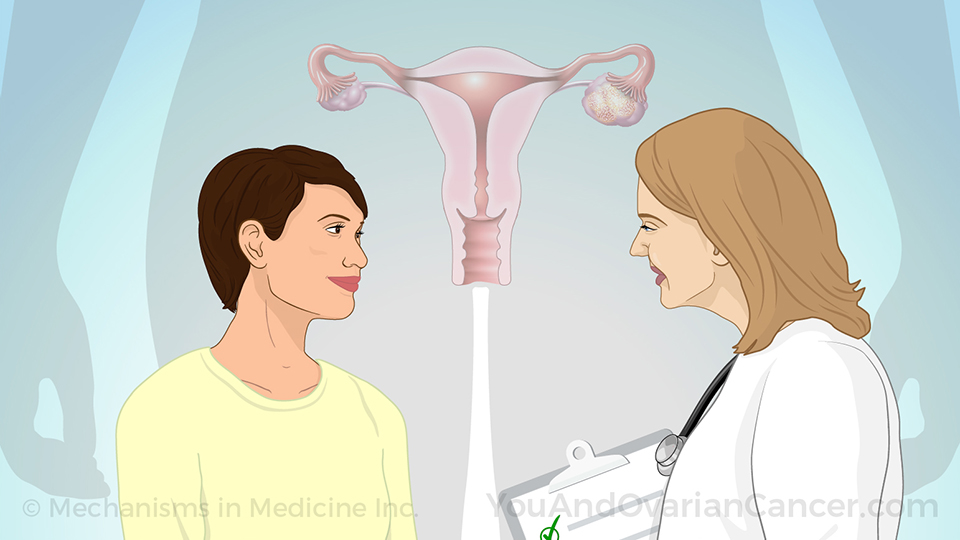Have you had
genetic testing for
mutations associated with
ovarian cancer? Dr. Jayanthi Lea of the University of Texas Southwestern Medical Center explains why this testing is important if you are diagnosed with ovarian cancer and what it can mean to have an
inherited mutation without cancer. Learn how the
BRCA1 and
BRCA2 mutations affect
lifetime ovarian cancer risk and if having a mutation means you will develop cancer. Ways to
reduce risk include
clinical trial participation and
surgery. Family members can also learn about these options. Dr. Lea also discusses an inconclusive result, or variant of uncertain significance, and when to see a cancer specialist or genetic counselor.
Click here to take our SURVEY
Your feedback is important to us! We will use your feedback to develop future areas of content about ovarian cancer which will help other patients, caregivers and families.
-
Share with family and friends:






































